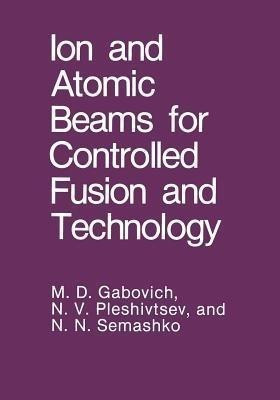Ion and Atomic Beams for Controlled Fusion and Technology(English, Paperback, Gabovich M.D.)
Quick Overview
Product Price Comparison
A beam of ions in the fonn of "canal rays" was first observed in 1886 by E. Goldstein. The first ion source was invented by J. J. Thomson in 1910. This ion source became the basis for the first widespread application of ion sources in mass spectrographs and mass spectrometers. The second important application of ion sources is ion accelerators, which since the beginning of the 1930s have been employed in research on nuclear reactions and are now used in industry and medicine. A third application of ion sources is in systems for isotope separation and re- search on the interaction of atomic particles with solids (1940s). The result of this research and development is the use of ion sources in semiconductor doping, decontamination of surfaces, and micromachining of surfaces (1960s and' 1970s), which is a fourth area of applications for ion sources. The heating of plasmas in magnetic confinement devices to thennonuclear temperatures (100-1000 MK) with the aid of megawatt beams of hydrogen and deuterium ions and atoms has become a fifth promising area of application for ion sources which can produce ion beams with steady-state currents of up to 100 A. Finally, experimental and industrial research are under way on the alloying of metals and the fabrication of coatings which greatly improve the physical and chemical properties of metals. These coatings can increase the hardness, high- temperature corrosion resistance, and wear resistance of metals, and can enhance or reduce friction, etc.


